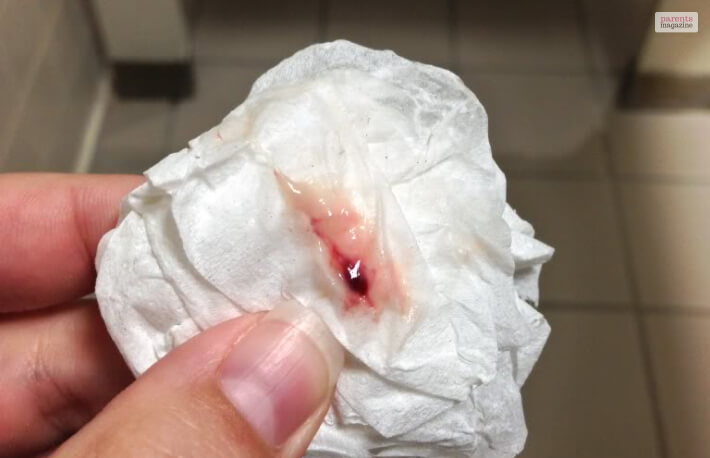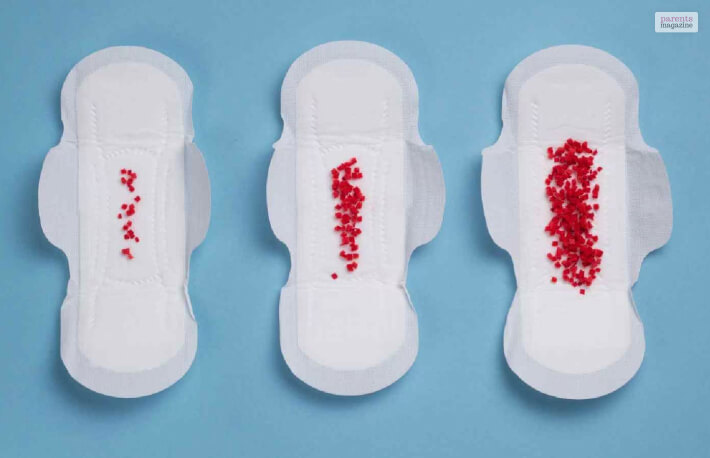
Implantation Bleeding: Causes, Symptoms, and When to Seek Help
Well, pregnancy can be tricky to understand, especially if it is your first time. There can be incidents where you can get worried, but it may not be so scary, and sometimes we take things casually, but it turns out to be quite serious. Of course, taking precautions is the best possible option, but knowing the basics can help a lot.
One such prevalent issue is implantation bleeding. This is nothing scary. This often happens to let you know that you have conceived. Not every bleeding after ovulation is periods. This can be the start of your new journey. Let’s start from the beginning today and discuss bleeding caused by implantation, when that occurs, how long it can last, and more about it.
What is implantation bleeding?

Bleeding happens when an embryo attaches itself to the uterine wall. If you are bleeding or spotting just after your ovulation period, you don’t need to be having your periods for that month. This can be the first sign that you have conceived.
This bleeding is called implantation bleeding. This is very common and happens to 25% of pregnant ladies.
This is a harmless way of your body letting you know about the change your body has observed. This happens within a few days of conceiving when the blastocyst, or what we call an embryo, attaches itself to the lining of the uterus.
Implantation bleeding vs period

Many people mistake bleeding caused because of implantation for menstruation. But there are certain basic differences.
- Period bleeding can last upto a week or more, but bleeding happening because of implantation lasts for 24 to 48 hours.
- It is more like spotting, not really heavy, and there is no clotting of blood, but periods start with heavy bleeding, and the bleeding reduces with time, and they can be clotting of blood.
- The color of blood is also different for this. It has a hint of pink in it, or it is brown. But period blood is usually bright red or dark brown in color.
- You can have severe cramps during periods, which may continue for many days, but when you are bleeding because of implantation, cramping is mild and not very intense.
When does this happen?
Let’s have a look at the timeline 28-day cycle with respect to ovulation, fertilization, and implantation. If we consider the first day of your period as day 1 of the cycle, then the 14th day will be the beginning of your ovulation, as it happens 14 days before the start of your next cycle.
Fertilization can happen within hours of ovulation or can happen within one day of ovulation. So, this happens around the 14th or 15th day of the cycle. After fertilization, it takes about six to seven days for implantation to happen, and the answer to the question of how long implantation bleeding can happen is not long. This can happen for a few days.
And How long does implantation bleeding last? Well, unlike most menstruation, implantation bleeding stops after 1 or 2 days. So, there is nothing to worry about it. However, you must ensure you take good care of yourself during this time.
What does implantation bleeding look like?

Bleeding that happens because of implantation is generally light pink, light brown, or sometimes dark brown. There is no heavy bleeding during this time. This is more like spotting or vaginal discharge. But if you notice that the color is bright red or you are clotting, it can be because you are menstruating or facing some other issues.
Symptoms of implantation bleeding

The basic symptoms that indicate the bleeding is happening because you have conceived are light bleeding or spotting, which would last for numbered days only. This is among the first signs of pregnancy. There are other symptoms as well.
- Nausea
- Headaches
- Back pain
- Mood swings
- Breast tenderness
- Light cramps
- Lethargy
Why does this happen?
When a fertilized egg attaches to the uterine lining, implantation happens. There is vascular tissue and blood vessels filled in the lining of the uterus. This kind of light bleeding can happen when the embryo sticks to the lining.
It is just like when we are trying to find a place and get cozy in there, we remove certain things from that place to make our own space. This is like that. The baby is trying to make its place inside your womb and clearing some tissues, and wrecking some blood vessels.
After the completion of the implantation process, the pregnancy begins to develop, and the uterus starts to produce more hormones known as human chorionic gonadotropin(HCG). This hormone helps the lining of the uterus stay thick to keep the embryo safe. This is the reason behind your pregnancy test coming positive. This hormone is the reason behind it.
When should you consult a doctor?
Visiting a doctor can be worth it if you are not expecting your period but are bleeding, bright red, and facing serious cramps.
Why take a risk? Also, if you are facing symptoms like fever, dizziness, weakness, rectal pressure, or severe pain in your shoulder, pelvis, or lower back, then going to the doctor is necessary.
These could indicate ectopic pregnancy or miscarriage. It is necessary to get immediate medical help if any of this has happened. It is better if you take preconception care and counseling sessions before pregnancy.
It is important to take good care of yourself during pregnancy, and consulting a doctor with any kind of problem is necessary. Any kind of unusual bleeding or pain can be a serious reason.
How Will Your Doctor Figure Out What’s Going On?
When you visit a doctor, a medical professional will ask you several questions about your symptoms. They would also ask you to show your medical history. Based on this, they will determine what the best course for you can be!
Your doctor may also recommend blood tests, including your blood type and the Rhesus (Rh) factor. This can help the doctor to determine whether you need Rho(D) immune globulin.
If you are Rh-negative, you would need Rho (D) immune globulin routinely between 27 to 28 weeks. Further, you would need that again within 72 hours of delivery. Other than that, the injection is also given to those who experience excessive bleeding during their pregnancy. If you are unsure about your blood type, you can talk to your doctor.
However, not all kinds of bleeding show signs of emergency or complication! But your doctor may ask you to perform some tests such as vaginal ultrasound. This helps to confirm that you are pregnant or if the fertilized eggs are being implanted correctly.
Are There Any Other Causes Of Bleeding During Pregnancy?
When you are pregnant, many things may cause your bleeding. Some can be harmless, while others can be deadly serious. If you are currently experiencing any bleeding, you must visit a doctor ASAP!
Now, if you are pregnant and spot blood in your underwear, it may have been caused by:
- Sex: You can blame the hormones and physical changes for this. Don’t worry, it will stop on its own.
- Fibroids and polyps: In this case, your doctor might ask you to do tests to check the growth of fibroids and polyps in your uterus.
- Cervical problems: Infection or any other growth condition on your cervix might cause you bleeding.
- Infection: Trichomoniasis or other sexually transmitted diseases can cause you light bleeding or other serious issues. If you can start the treatment at the early stage, you can keep your baby healthy.
Wrapping up!
To sum it up, implantation bleeding is nothing scary and happens to most people during pregnancy. It marks the beginning of your new journey. If you are bleeding right after your ovulation period, notice the symptoms, you will obviously know if you have been trying to get pregnant for a while. Take a test after a few days and not immediately. But talk to a doctor if you feel anything is not okay with the type of your bleeding and if you find it unusual.
Have A Look :-
Already have an account?
Sign In
Create your account
User added successfully. Log in








